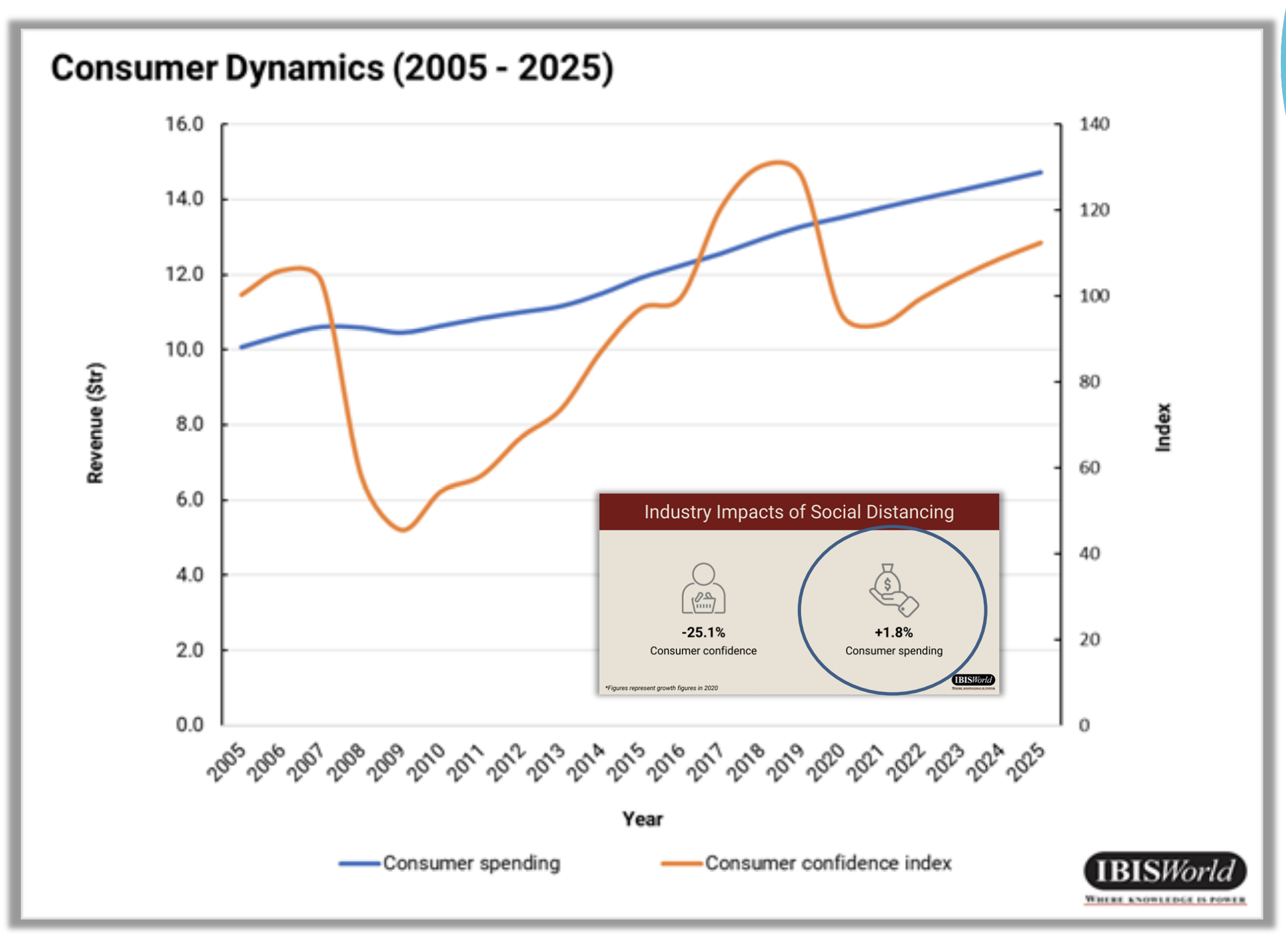In 'normal' times, Boston area consumers would be expected to rack up $100.9 billion in annual retail sales. Of course, since the onset of the Coronavirus crisis, nothing has been normal.
But as Gordon Borrell, CEO of Borrell Associates, explained to members of the Boston area small business community via teleconference, consumers are still spending. This, it turns out, is normal.
Mr. Borrell shared research from Ibis that demonstrates during every type of crisis, including depressions, recessions, floods, hurricanes, earthquakes, fires, and, now, pandemics, consumers still spend.
The business literature contains an abundance of examples of how continuing to market and advertise during an economic crisis can help a company survive and emerge from the episode even stronger than before.
Boston small business owners who do continue to advertise and market, however, should consider modifying their pre-crisis strategy.
Janet Bliss of Ernst & Young published an article this week in the Harvard Business Review, "Brand Marketing Through the Coronavirus Crisis". It provides useful advice the Boston business community could find helpful.
"Present with empathy and transparency," advises Ms. Bliss. "People feel vulnerable right now. Empathy is critical. Many banks, for example, have moved to waive overdraft fees, recognizing the hardship on their customers. SAP has made its Qualtrics Remote Work Pulse platform free to companies who might be rapidly transitioning to new ways of working. Such instances show humility in the face of a force larger than all of us."
Ms. Bliss also suggests to "use media in more agile ways".
"To quickly pivot creative messages as circumstances change, marketers will want to build more rapid-response operating models internally and with agencies. Access to remote production and creative capacity will become particularly important as the crisis evolves. Nike, for example, immediately moved to adopt a new message: “Play inside, play for the world.” And in order to promote social distancing and show a commitment to public safety, Chiquita Brands removed Miss Chiquita from their logo. “I’m already home. Please do the same and protect yourself,” its Instagram caption read."
Ms. Bliss then suggests to "associate your band with good."
"People will remember brands for their acts of good in a time of crisis, particularly if done with true heart and generosity," she says. "This could take the form of donating to food banks, providing free products for medical personnel, or continuing to pay employees while the company’s doors are closed."
"Adobe, for example, immediately made Creative Cloud available to K-12 institutions, knowing this was a moment to give rather than be purely commercial. Consumers will likely remember how Ford, GE, and 3M partnered to repurpose manufacturing capacity and put people back to work to make respirators and ventilators to fight coronavirus. And people appreciate that many adult beverage companies, from Diageo to AB InBev, repurposed their alcohol-manufacturing capabilities to make hand sanitizer, alleviating short supplies with their “It’s in our hands to make a difference.”
To read the entire HBR article, click here.
More articles about marketing and advertising a New England small business during the current Coronavirus crisis:
- Keeping Your Boston Small Business Healthy During The Corona Crisis
- How Well Does Social Media Work For Boston Retailers?
- Why Boston Area Mortgage Lenders And Brokers Need To Advertise Now
- Small Business Advertising In Boston: Target The Spenders
- Advertising On Boston Television vs. Local Radio
- Advertise In Boston: Reaching Millennial Parents
- Why Used Car Dealers In Boston Should Advertise Now
- Boston Small Business Owners Ask: How Do Consumers Spend Their Money?





